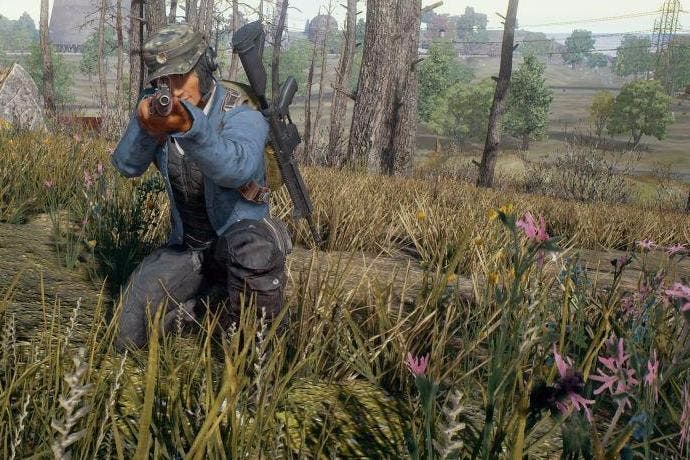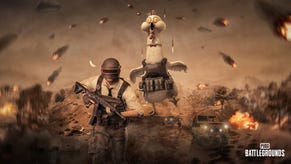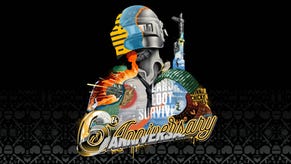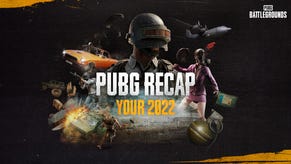How PlayerUnknown's Battlegrounds emerged from the messy history of survival shooters
Seize the DayZ.
After 20-something hours of PlayerUnknown's Battlegrounds, my Steam recommendations are a wasteland. I've sunk a meaningful amount of time into a game with the words 'early access', 'survival', and 'shooter' in its tag cloud, and Valve's algorithm knows something about those. The earliest manifestations of that 'what if DayZ but dinosaurs' phenomena occupy three slots in a row in my 'you may also like' queue; an age gate indicates that we've arrived in 'what if DayZ but penises'. Zombies fill the gaps.
It's hard to draw up a strict definition of these games. There are a lot of them, for certain. They're the product of the unlikely union of the Minecraft phenomenon and, of all things, ArmA's modding community: the discovery, obvious perhaps in hindsight, that the midpoint between 'playing with Lego' and 'being in the actual army' is 'paintball'. It is very modern, this marriage: impossible without the flexible standards of early access, the convergence of traditional modding and cheaper access to powerful game engines, and the emergence of compatibility with YouTube and Twitch as arguably the most important factor in the success of a PC game.
This unlikely chemistry means that the survival shooter doesn't really have a set form. Is it an MMO? A crafting game? Horror, action, a social experiment? Short or long-form? Modern? Fantasy? Dicks? Dinosaurs? Yet you know one when you see one, and those loose definitions, coupled with early access' looser standards, conspire to make these games as easy to click past as they are to click on. The fastest route to success, for a survival game, is to have a gimmick that looks good on a YouTube title card (see also dicks, dinosaurs). Survival itself, as a game system, is a shortcut to drama that circumvents the need for traditional multiplayer concepts like structure or balance. You're in a featureless desert. Your hunger bar is ticking down. That guy's got a melon. Here's a stick. Go.
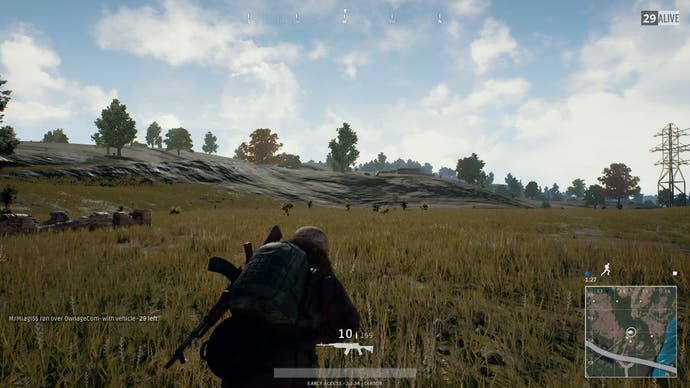
There's more to this genre's rapid proliferation than opportunism, however. There was, and is, a powerful hunger for multiplayer unshackled from rigid structure, for more meaningful interactions with strangers encountered online - these things make for good YouTube, certainly, but this is basically because they're already fundamentally good. DayZ's spectacular honeymoon period was powered by a million players' sense of what might happen out there in the wilderness: the harrowing danger represented by a shape moving on a distant hillside, the triumph of discovering a can opener and the tragedy of having it taken from you at gunpoint by a man in a motorcycle helmet who later treats you to a cameo appearance in his Twitch highlights.
This was, functionally, the rebirth of the traditional MMO: a return to a time pre-World of Warcraft, pre-themepark, when players murdered each other for loaves of bread in the forests of Ultima Online. When I spoke to Dean Hall about DayZ in early 2014, before he left Bohemia to work on his own projects, the game was headed in that direction: player housing and more persistence, more hooks for the types of 'you had to be there' MMO stories that have turned EVE Online into one of the few games where the actions of its players are more newsworthy than the actions of its developers.
EVE is the exception, however, to a brutal rule: these wide-open online sandboxes are not consistent, and they do not last. Games get solved, and as they do their vocabulary shrinks. Those tense personal standoffs over a tin of beans in DayZ's early days were the product of player naivety: over time it became quicker and simpler to shoot each other and as a consequence the game went back to being a shooter. When this happens, it reveals what a multiplayer sandbox is actually about, and in turn this provides an opportunity for somebody else to come along and do that one thing better. As Ultima Online begat EverQuest begat World of Warcraft, so DayZ begat H1Z1 begat PlayerUnknown's Battlegrounds. There's a bittersweet symmetry to the way that Sony Online Entertainment, now Daybreak, occupy the midpoint of two different epoch-defining family trees.
That's an abridged genealogy: the rise of hunger games modes in Minecraft played an important part, as did the ongoing work of the same ArmA modding community that produced DayZ. It's worth pausing on H1Z1 in particular as the point where these factors coalesced and abruptly pivoted towards the form that Battlegrounds would ultimately adopt. Conceived as a game much closer to DayZ - something that would take advantage of SOE's experience as an MMO developer - H1Z1 instead owed its success to the popularity of its King of the Kill battle royale mode. This was the point where all of those different bloodlines intersected, where wisdom earned through the rapidly iterative process of mod development collided with an ambitious MMO template gradually degenerating into its basic component parts.
A little traditional multiplayer logic - some structure - in other words - made sense of the two. Matches had a defined length, a winner, something resembling item balance, and a metagame. Something of the heady potential of a survival sandbox survived in reduced form, but crucially this act of reduction made those experiences consistent and repeatable. It remained - remains - exciting to run into another player in the wilderness because both knew what to expect from the encounter. The survival shooter gained a measure of coherence, albeit by accident: H1Z1's biggest imperfections stem from the fact that the game it has become was not the game it was originally intended to be.
PlayerUnknown's Battlegrounds' tremendous success - at more than four million copies sold in three months, it must be considered among one of the biggest games of year on any platform - is owed to the remarkable-for-being-remarkable fact that it is one of the few games of its type that was conceived from the ground up to be the game that it is. It is very much like H1Z1 and the ArmA mods that made its lead designer's name, but it arrives with the backing of a publisher, with a specific design and scope, with a relatively traditional, easily-understood structure. It takes what was fundamentally appealing about survival sandbox games and makes it quick, accessible, relatively stable, and good-looking: more or less exactly what World of Warcraft did for the MMO, with equivalent results.
Battlegrounds' Steam tags are almost an accident. It's a shooter in which you must survive, so, yes - 'survival' and 'shooter' fit. It's in early access because it needs testing, however, not because it's on a quest to discover its true self. It knows what it is, which is a shooter where you crawl on your belly through a wheat field in an attempt to sneak up on the lady with the silenced sniper so you can get the drop on the guy with the AK in the bushes so that you, not a hundred other people, can win the game and get the points and open another startlingly and inexplicably underwhelming loot chest. It's brilliant and strange but crucially also well-defined and accessible - factors that raise it far enough above its early access survival shooter associates that it may as well be in a different genre altogether.
